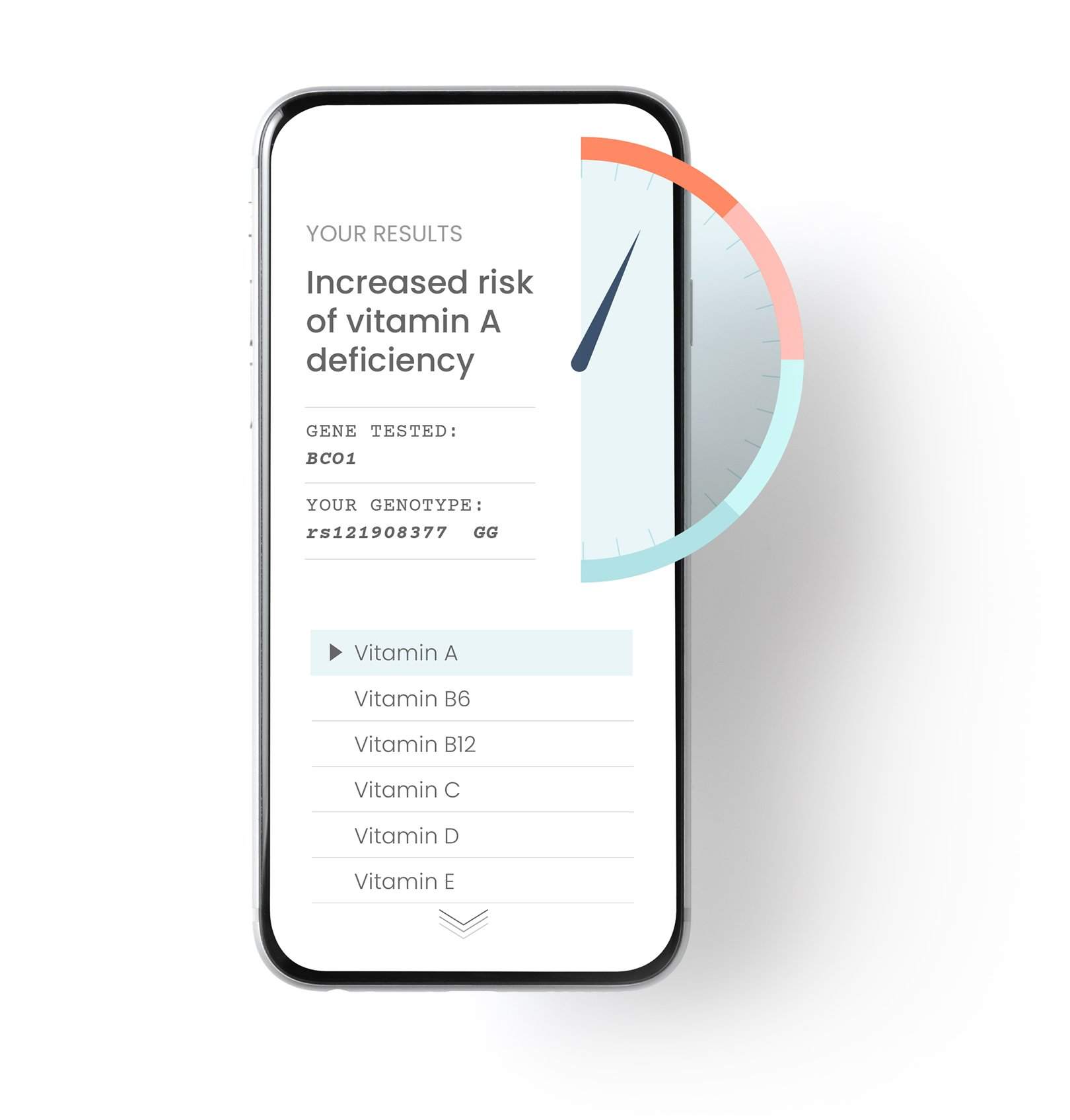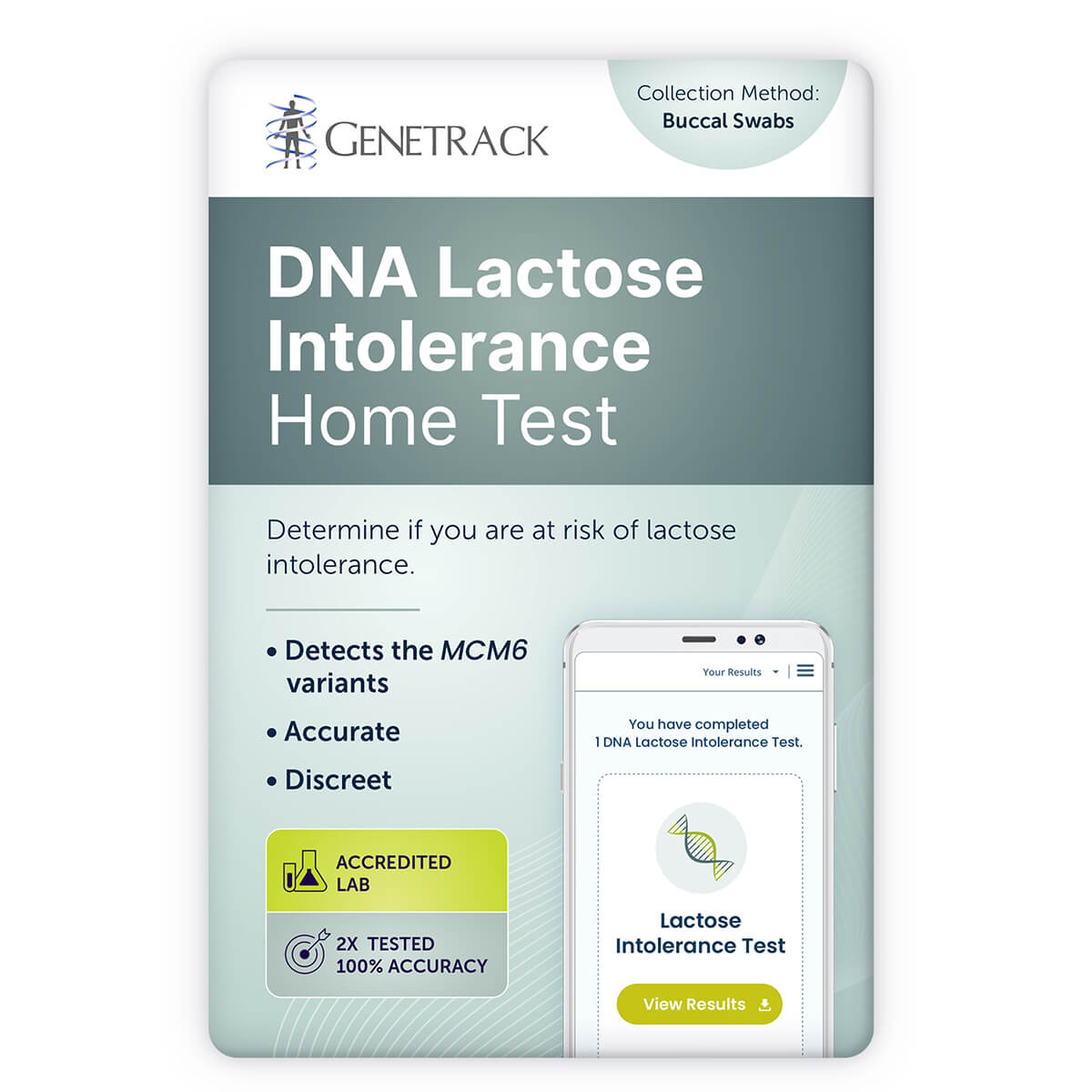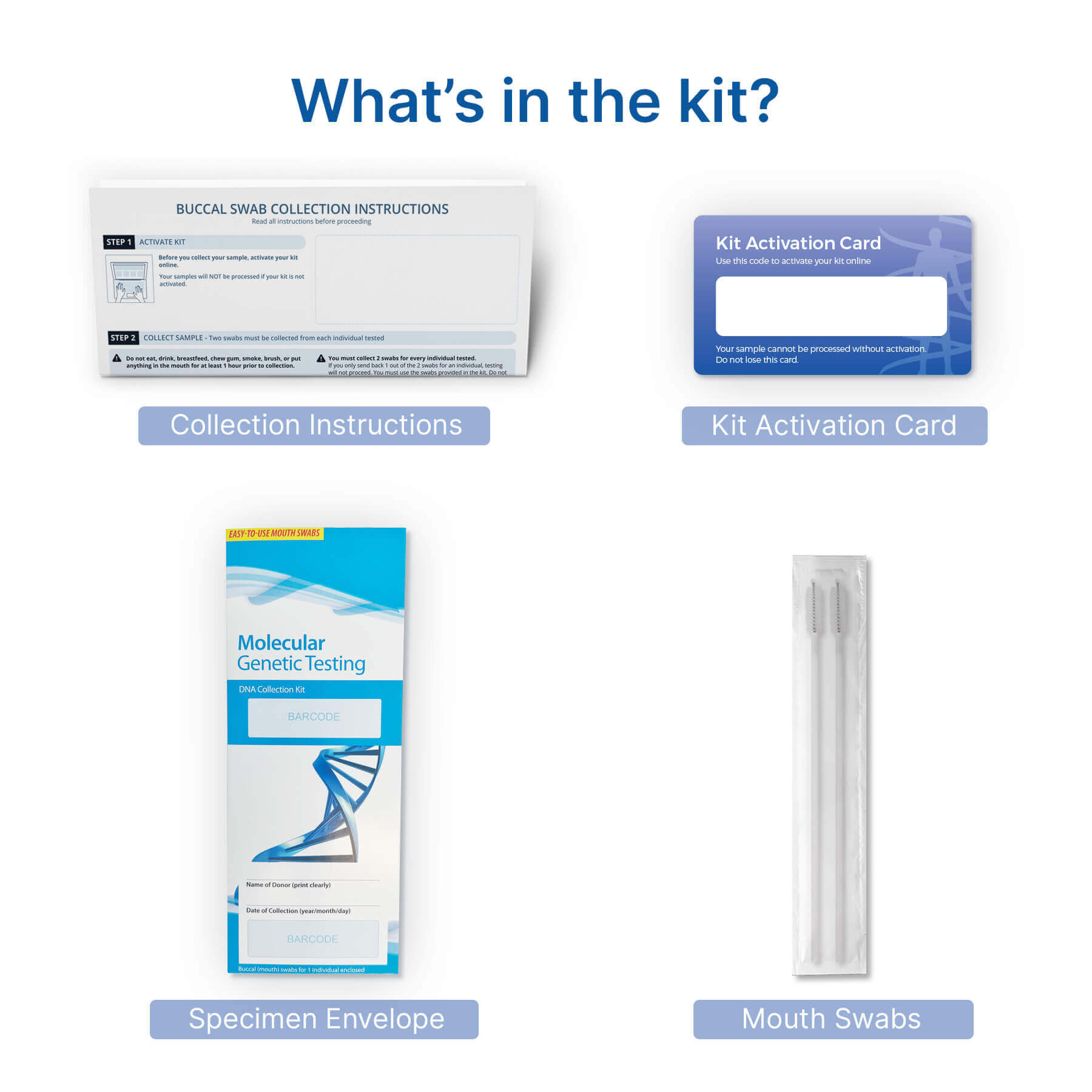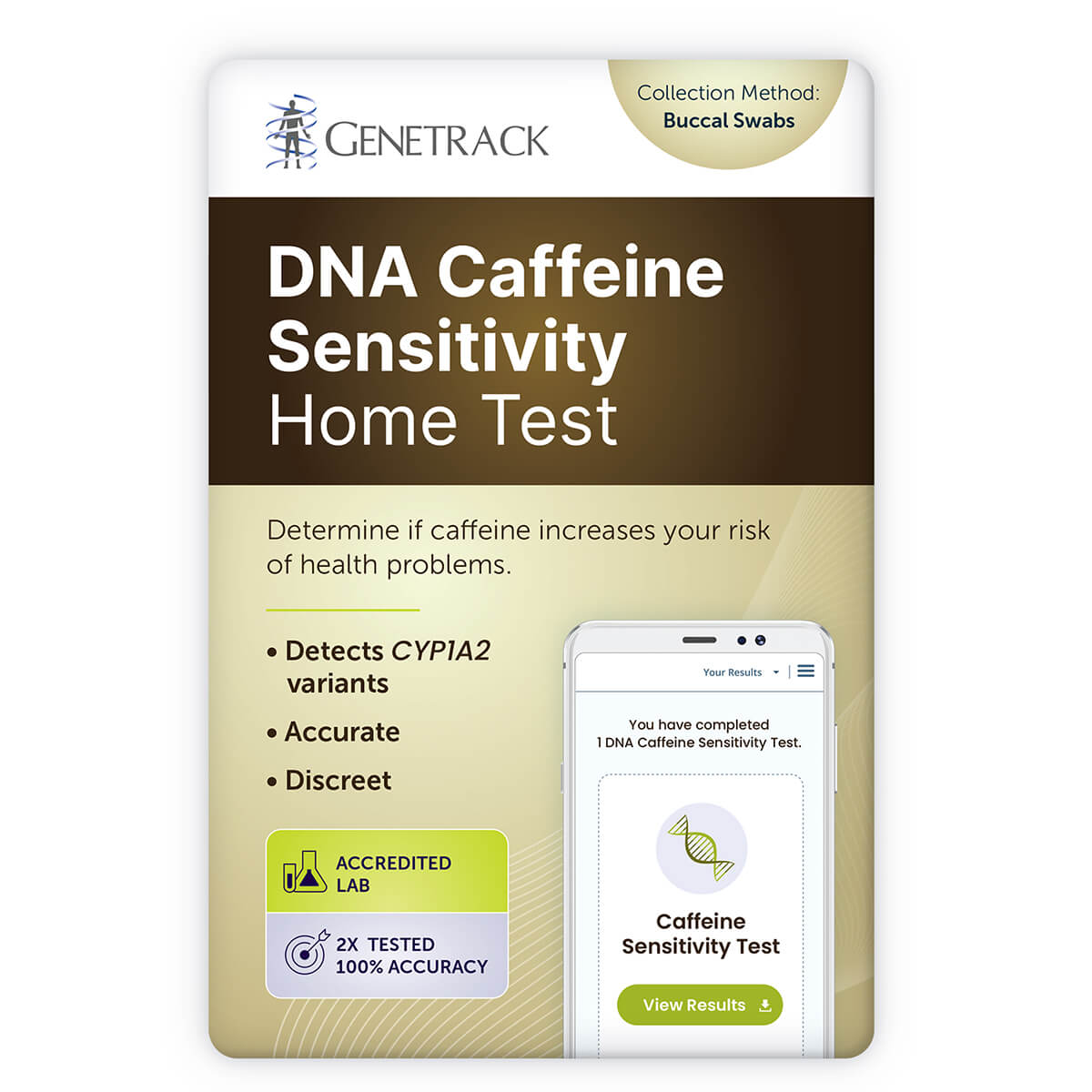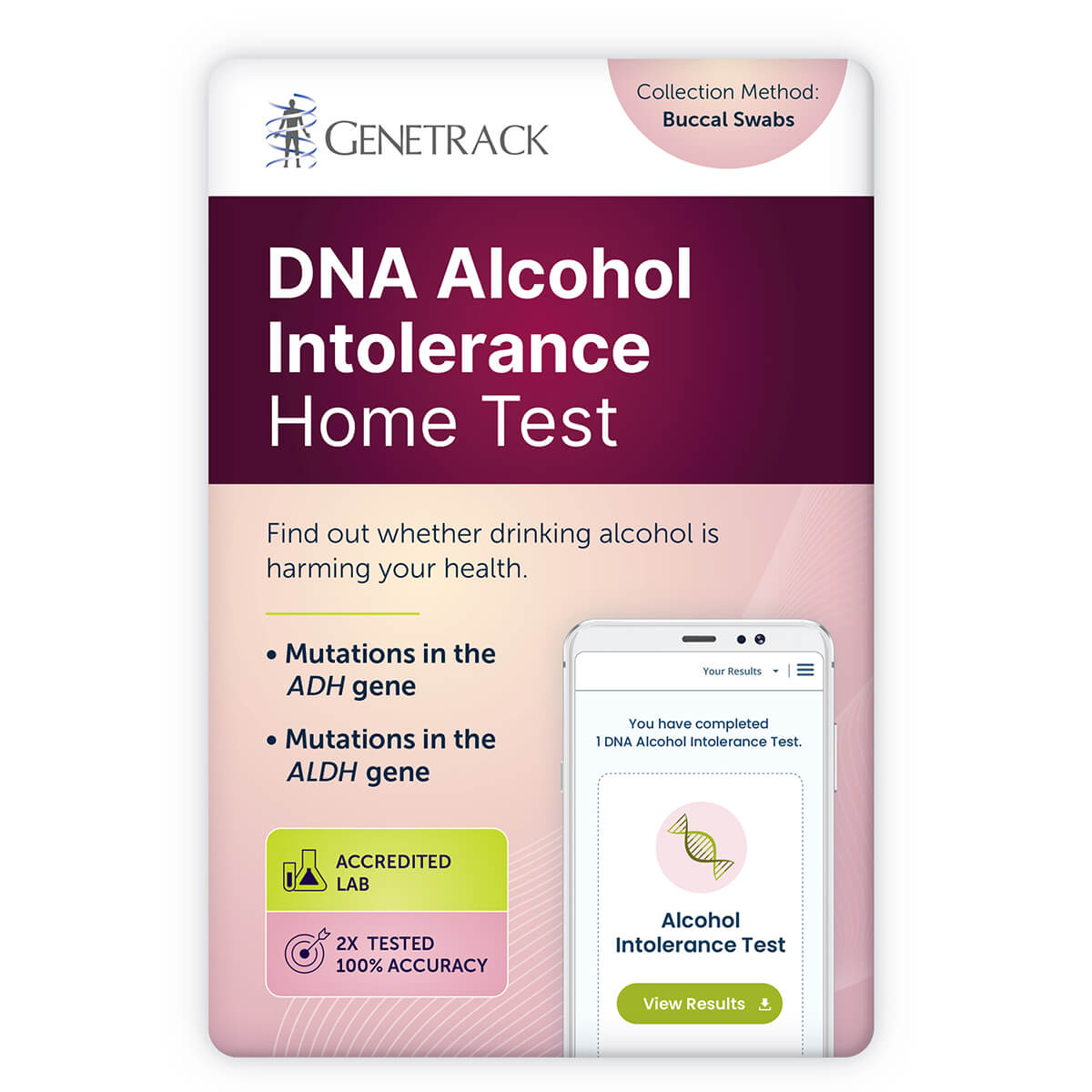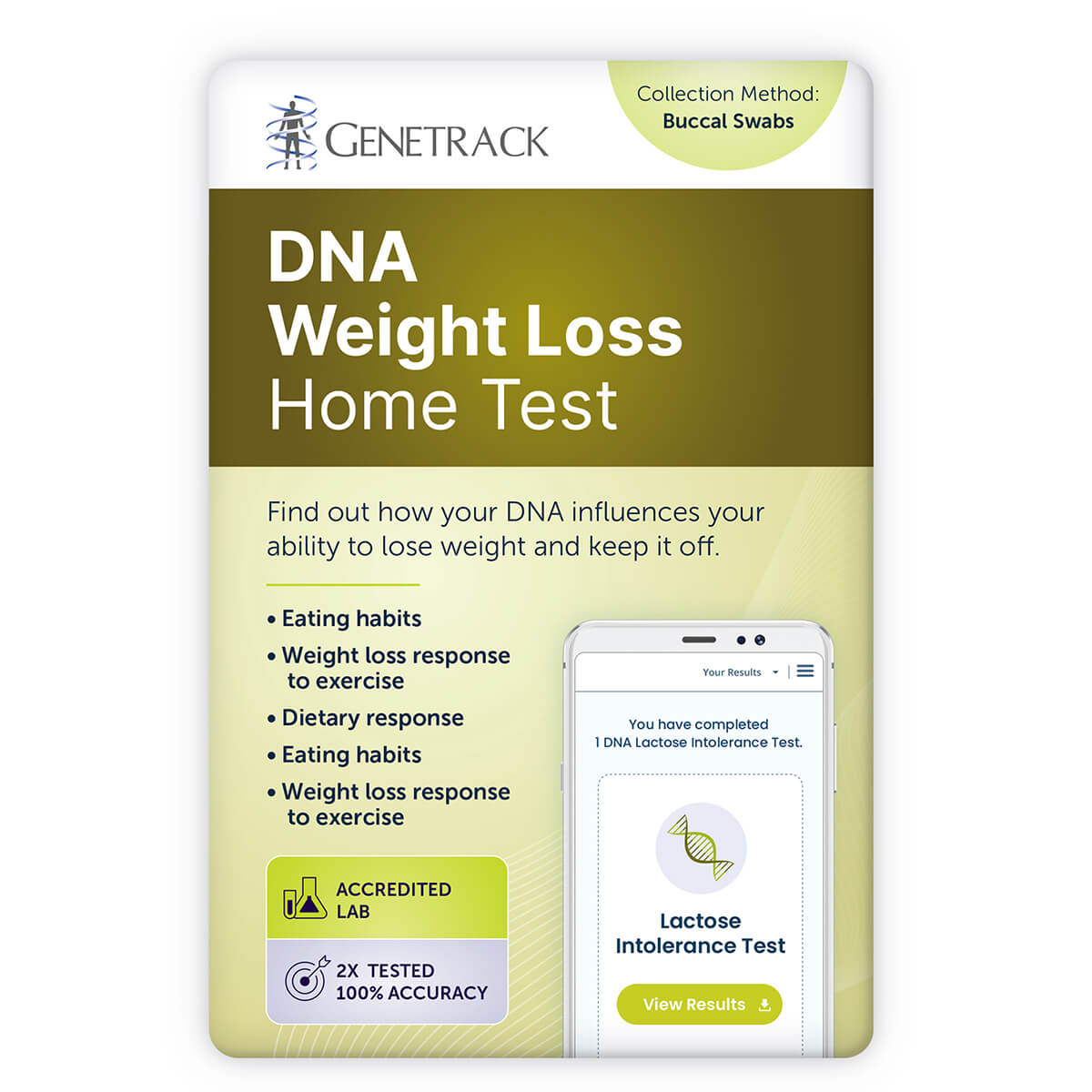DNA Lactose Intolerance Test
Discover if you’re genetically predisposed to lactose intolerance.
Have you ever felt bloated or experienced digestive discomfort after enjoying a dairy treat? Find out if you might be one of the many individuals with lactose intolerance with the DNA Lactose Intolerance Test.- Tests for five common genetic variants in the MCM6 gene.
- Distinguishes between lactose intolerance and lactase persistence.
- 100% confidential online results
- Simple and pain-free sample collection.
€230
AABB, ISO17025 & CLIA accredited lab
What is lactose?
Lactose is the sugar present in dairy products. It’s broken down by an enzyme called lactase, which is produced in the small intestine. When lactose is digested, it splits into two simple sugars: glucose and galactose.
Most mammals, including humans, produce high amounts of lactase as infants. This production typically decreases after weaning. However, many humans continue to produce lactase into adulthood due to our dietary dependence on dairy.
What is lactose intolerance?
Lactose intolerance arises from a reduced production of lactase. When lactose isn’t properly digested, it accumulates in the large intestine. This buildup promotes the growth of gas-producing bacteria, causing digestive issues upon consuming dairy.
Lactose intolerance can be temporary, such as after an illness or surgery, or permanent due to genetic factors or lifelong diseases like cystic fibrosis. It’s essential to differentiate between lactose intolerance (a digestive issue) and dairy allergy, where the immune system reacts to milk proteins.
What is lactase persistence?
Lactase persistence is the ability to produce the lactase enzyme throughout one’s life. This contrasts with lactose intolerance, where individuals produce limited or no lactase after infancy, leading to digestive issues when consuming dairy. Those with lactase persistence can comfortably consume dairy products into adulthood without experiencing the typical symptoms of lactose intolerance.
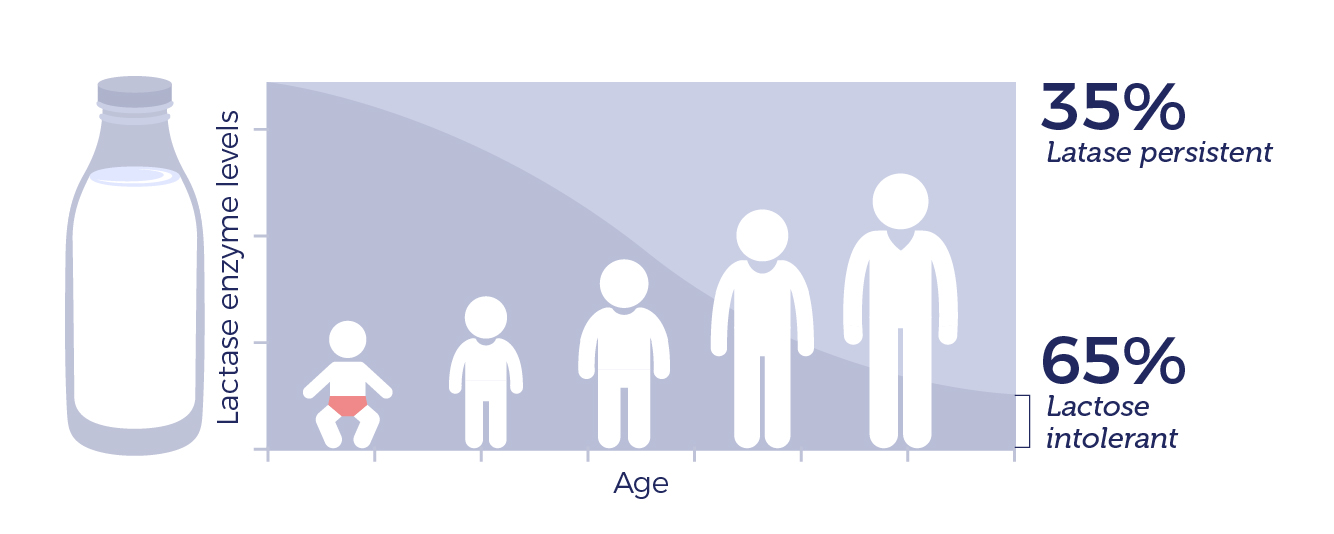
The Genetics
Genetic variation plays a crucial role in predicting lactose intolerance and lactase persistence. This DNA test helps identify if you have inherited any of the five common changes in the MCM6 gene associated with lactose intolerance (normal) or lactase persistence (variant):
- rs41525747, -13907C>G
- rs4988235, -13910C>T
- rs41380347, -13915T>G
- rs145946881, -14010G>C
- rs182549, -22018G>A
How are lactose intolerance and lactase persistence inherited?
Lactose intolerance and lactase persistence are inherited traits influenced by the LCT (lactase) and MCM6 (regulatory protein) genes, both located on chromosome two, one of the autosomal chromosomes. Autosomal chromosomes are inherited in pairs, one from each parent.
- If an individual inherits two copies of the normal MCM6 gene, they will be lactose intolerant in adulthood and can pass this wild-type gene to the next generation.
- Inheriting two copies of the variant MCM6 gene leads to lactase persistence and the ability to pass on this lactase persistence trait to the next generation.
- Individuals with one copy of the normal MCM6 gene and one copy of the variant MCM6 gene typically exhibit lactase persistence, although some lactose sensitivity may still be possible. This pattern of inheritance is known as autosomal dominant since only one variant gene copy is necessary for lactase persistence.
How common is lactose intolerance?
Lactose intolerance varies significantly based on ethnicity. Historically, the mutations that led to lactase persistence (the ability to digest lactose into adulthood) developed when certain populations began to rely more on dairy as a primary food source.
- Asian Americans: Approximately 90% are lactose intolerant.
- African-Americans: Around 70% experience lactose intolerance.
- Native Americans: Between 95-100% are lactose intolerant.
- Mexican-Americans: About 50% are lactose intolerant.
- Caucasians: Less than 25% are lactose intolerant.
- Northern European Ancestry: Only about 5% are lactose intolerant, largely because dairy has historically been a staple in their diet.
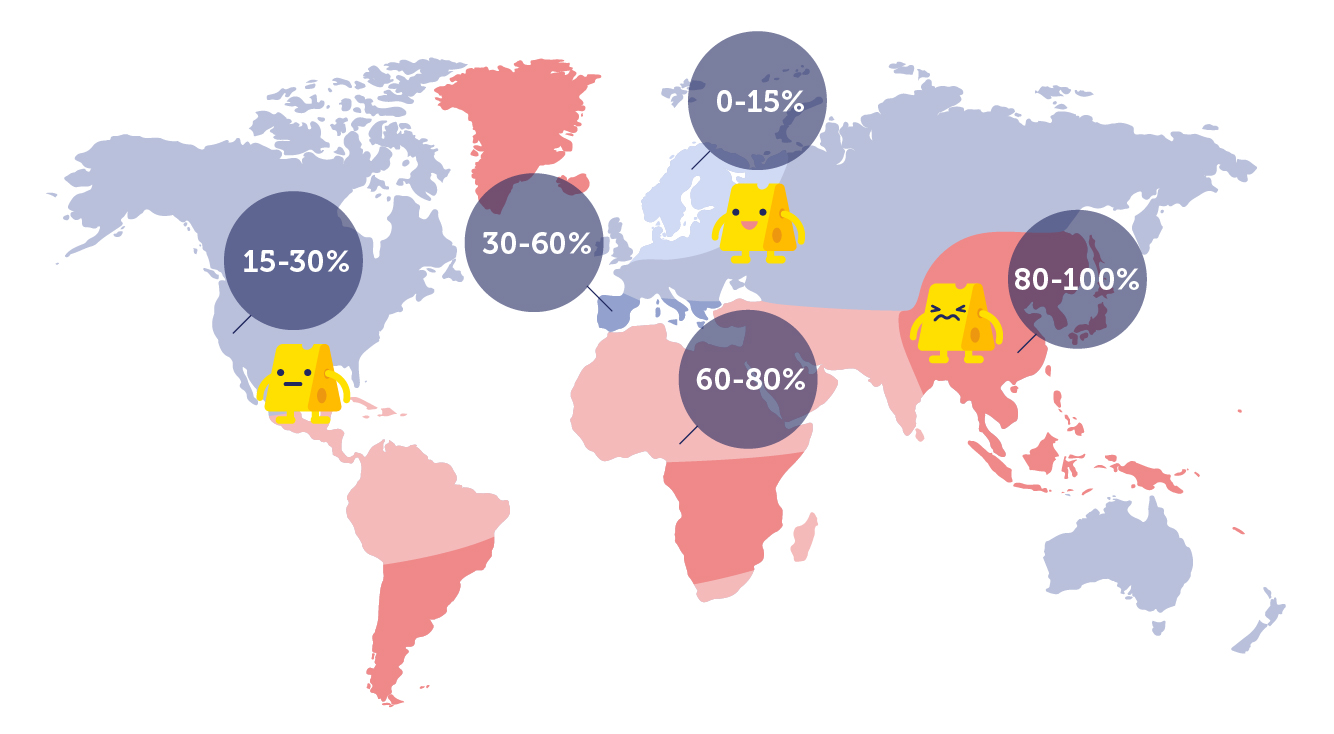
What are the symptoms of lactose intolerance?
When lactose isn’t adequately digested, it accumulates in the large intestine, leading to various digestive symptoms:
- Bloating
- Flatulence
- Diarrhea
- Nausea
- Vomiting
- Abdominal pain or cramps
- Gurgling sounds from the abdomen
How Home DNA Testing Works

Order Test Kit
From relationship tests to health tests, we offer a wide range of DNA tests to fit your needs.

Collect & Ship
Collect your DNA with our painless mouth swabs, then send the samples to our laboratory for analysis

Receive Results
Access your confidential results online the moment testing is completed. Our team of experts is available for any questions.
Electronic Reports Delivery
